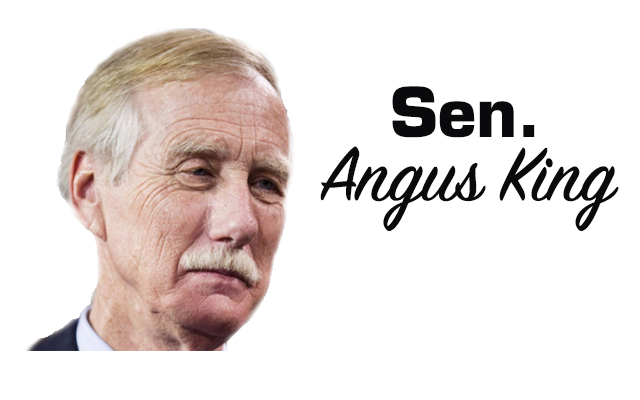 I was recently asked by an 8th grade student at Oxford Hills Middle School how I planned to create more jobs and support economic growth in Maine and across the country. It is a good question and one that always weighs heavily on my mind. There is no single solution. There are a number of different approaches we have to take to help our nation’s long-term unemployed find new work. The first step is to make sure they keep looking.
I was recently asked by an 8th grade student at Oxford Hills Middle School how I planned to create more jobs and support economic growth in Maine and across the country. It is a good question and one that always weighs heavily on my mind. There is no single solution. There are a number of different approaches we have to take to help our nation’s long-term unemployed find new work. The first step is to make sure they keep looking.
Since 1935, the federal-state unemployment system has assisted workers who have lost their jobs by temporarily replacing their wages while they search for work. State-funded benefits are generally provided for a period of 26 weeks. In times of recessions and recoveries, the federal government has historically created federally-funded unemployment programs to assist the long-term unemployed. Most recently, in 2008, Congress expanded the unemployment insurance safety net with the federally-funded Emergency Unemployment Compensation (EUC) program.
The EUC program provides additional funding so these vital benefits can assist the long-term unemployed for up to 73 weeks, depending on the state.
For the past five years, the extension has served as a lifeline for countless individuals – including 80,000 in Maine – by providing them the necessary financial resources to continue their search for new jobs and remain in the workforce. Unfortunately, partisan gridlock prevented Congress from renewing the EUC this week. As a result, 1.3 million Americans across the country suddenly have found themselves cut-off.
The consequences of this failure to act are certain to have an impact on our economy. Earlier this month the Department of Labor announced in its December jobs report that the national unemployment rate had fallen from 7 percent to 6.7 percent. However, this reduction did not result from an increase in new jobs. Quite the opposite – the decline is caused by an increase in the number of people who have decided to abandon their search for new employment and leave the workforce.
There are around 4 million Americans who have been unemployed for more than 27 weeks, and long-term unemployment is at its highest level since World War II. This is a disturbing trend. Although not the only solution, renewing the EUC program would undoubtedly help slow the flow of people leaving the workforce and prevent us from further straying off the path to economic stability.
The challenge before Congress now is finding consensus not only on whether to extend the program, but how. Some argue we should pass the Emergency Unemployment Compensation Extension Act without consideration of how to pay for it – by the way, extending the program for three months costs over $6 billion. Others contend that we simply can no longer afford to provide these benefits. I fall somewhere in the middle.
I believe we must renew the EUC program to keep this vital safety net in place for those who need it most; however, we must also find ways to offset the costs. It is both the socially and financially responsible thing to do. To that end, I cosponsored two amendments that would help offset the cost of a short-term extension of the program. One of these, which would have reduced overlapping unemployment and disability benefits, was included in the Senate Majority Leader Harry Reid’s amendment to pay for extending benefits through November.
Unfortunately, the bill failed to gain enough bipartisan support to pass. Without an extension, it is expected an additional 3.6 million Americans will see their benefits disappear over the next year. While I was disappointed that once again partisan politics obstructed reasonable and responsible governing, I remain committed to working with my colleagues on this issue so that we can find a compromise solution to help those who need it most.
Presque Isle, ME
39
Clouds
Houlton, ME
39
Clouds
Caribou, ME
39
Clouds
Fort Kent, ME
39
Clouds
Change Location
- Presque Isle
- Houlton
- Caribou
- Fort Kent
© 2024 Bangor Publishing Company.








